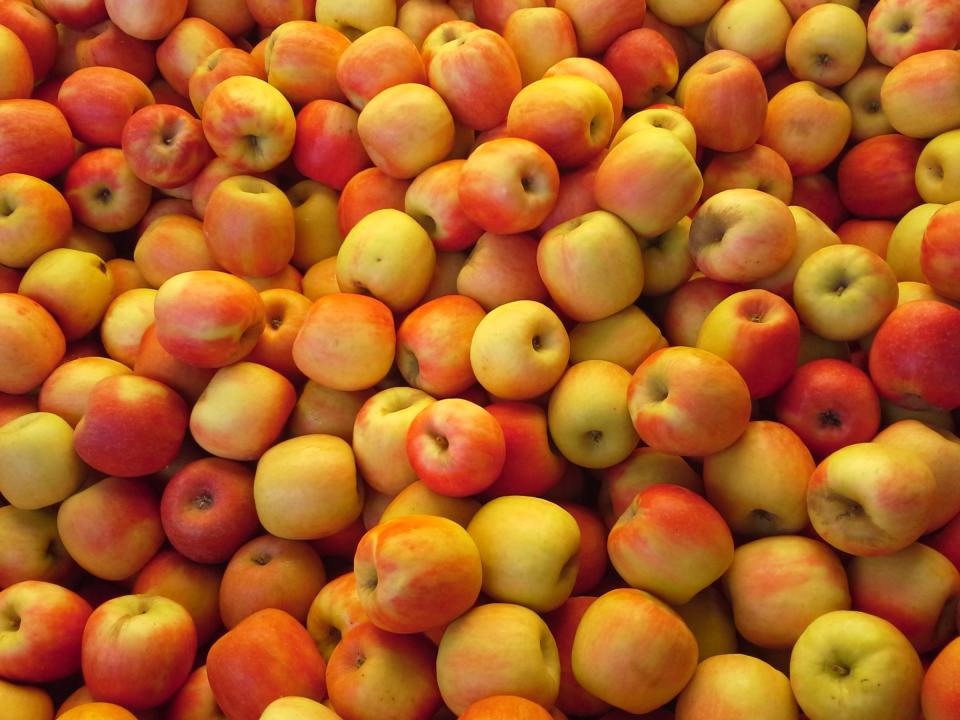A Brexit-induced labour shortage is driving the UK's apple industry towards a 'cliff edge'

Imperfect
LONDON – The UK's apple-growing trade body warned that the industry faces a "cliff edge" as Brexit nears, and is experiencing a 20% reduction in the supply of seasonal labour.
English Apples and Pears, the trade body, said labour availability was the main risk to the industry, which produces the more than 20 varieties of apple grown in the UK.
"All British apples and picked by hand, which means that the harvest from orchards is highly labour-intensive," Steven Munday, chief executive of English Apples and Pears, told The Guardian. "We're working hard with the National Farmers' Union (NFU) and other bodies to lobby for access to the required seasonal labour after Brexit."
Lower-skilled and lower paid sectors in particular are already starting to feel an immigration pinch, and the shortage of NHS nurses has been well reported. In August, Britain's food industry warned that labour shortages after Brexit could leave over a third of its businesses unviable, since almost a third of the UK's food and drink manufacturing workforce are European immigrants.
Hops Labour Solutions, which recruits seasonal and temporary workers for the UK agriculture and horticulture industries, said a weaker pound had made the UK a less attractive place to work. "We have managed to scrape by this year but 2018 is going to be a cliff edge," he told The Guardian. "Apples and pears are a particular problem because it's such a short season — typically six weeks, which means we cannot attract UK workers because of the welfare system."
In June, a NFU survey showed the number of seasonal workers coming to work on British farms had fallen by 17%, leaving some businesses critically short of workers.
The survey, which covered the period from January to March, showed that the number of labour recruiters unable to meet the demands of farms rose four-fold, and that the proportion of returning seasonal workers dropped throughout the first five months of the year, from 65% to 33%.
"A lack of clarity regarding the UK's future relationship with the EU and a weakened sterling has contributed to the reduction in workers on farms now being reported by labour providers who source seasonal workers," said NFU horticulture and potatoes board chairman Ali Capper.
NOW WATCH: SRI-KUMAR: Watch the bond market for signs of a recession
See Also:
Wealthy Chinese families are seeing Brexit as a 'good buying opportunity'
Britain's leading fintechs are banding together to work out a Brexit strategy
SEE ALSO: 'Neglected workforces:' ex-prisoners could help plug a post-Brexit labour shortage

 Yahoo Finance
Yahoo Finance 
